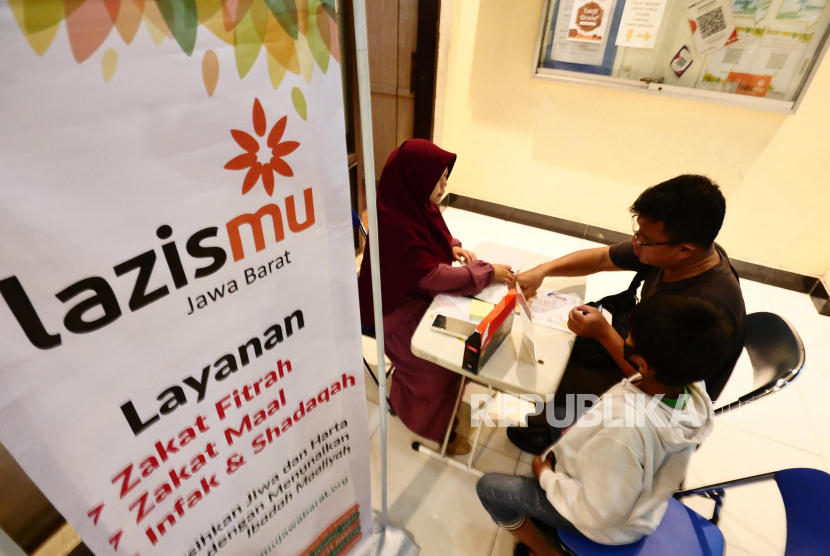REPUBLIKA.CO.ID, JAKARTA -- The poverty rate in Indonesia today is still classified as high. Therefore, poverty alleviation is a priority for many Islamic philanthropic institutions, including the Amil Zakat Infak Institute and Aldekah Muhammadiyah (LazisMU).
Celebrating the end of 2023 and the beginning of 2024, LazisMu held a reflective discussion entitled “Poverty and Inequality in Indonesia: What is the Role of the Zakat Institution?” The forum was attended by more than 150 participants online on Friday (29/12/2023).
In his speech, Chairman of the LAZISMU Ahmad Imam Mujadid Rais affirmed his institution's commitment in efforts to eradicate poverty in Indonesia. As mentioned in a hadith of the Prophet Muhammad, the poor tend to be closer to disbelief.
In Arabic, kufr means closed 'or' obstructed. 'Thus, the disbelief can relate not only to the aspects of Islamic practice, but also to the economic and social aspects. In a sense, poor individuals or families are denied access to the fulfillment of basic needs.
“The poor often don't have options, like 'what to eat today' or 'what to do. ' They experience social as well as economic deprivation. In order to survive, they end up doing things that violate religious rules or social norms and laws,” said Ahmad Imam Mujadid Rais.
Zakat, charity, and waqf can be instruments to address such issues. He said that LAZISMU is ready to increase its contribution to the eradication of poverty and inequality in the country, through the population and distribution of ZIS to the needy.
“The hope is that zakat given by the Muzakki through LAZISMU can contribute to poverty alleviation. So poverty does not drive our brothers into disbelief,” Rais said.
Treasurer of Muhammadiyah Hilman Latief as keynote speaker in this forum appreciated LAZISMU's performance throughout 2023. However, he continued, this institution and Muhammadiyah in general still need to formulate some things related to the goals of eradicating poverty and overcoming inequality.
For example, he continued, Muhammadiyah needed to create a definition of poverty and poverty alleviation. Only then can the Ministry design strategies that are measurable and feasible to implement in the field. It was to realize the grand narrative behind zakat worship, which is to “turn mustahik into muzaki.”
LAZISMU to create pilot projects in each province in Indonesia. “Therefore, I encourage LazisMu to create pilot projects in each province in Indonesia. Determine the place, what kind of problems it is on the ground, and how long LAZISMU or MPM (Muhammadiyah Community Empowerment Assembly) intervened there,” said Hilman Latief.
“Likewise, any aspects that we intervene in. We also need to measure how it progresses from the beginning of the intervention to a certain period. Well, from here comes a kind of laboratory of Islamic philanthropy,” said the chairman of LazisMu in the period 2015-2020.
According to Hilman, poverty alleviation is certainly not an instant process. It takes time, strategy, strong design, as well as focus. Therefore, Islamic philanthropic institutions, including LAZISMU, must dare to conduct self-evaluations.
“Has the process of empowerment and poverty alleviation been successful? Can we show the success profile of the economic empowerment we do in poverty alleviation? Your future state, including other institutions, must dare to conduct self-evaluations,” he added.
UGM's Coordinator of Poverty and Inequality Studies, Vishnu Setiadi Nugroho, said in his presentation that sustainable development should be carried out jointly and inclusively. Every part of society must be lifted by the wave of economic growth success.
“For effective and sustainable social improvement in Indonesia, our focus must shift to strengthening human capital through social protection programs,” said Vishnu.
This approach also forms the basis for long-term productivity and equality. In addition, Vishnu added that the social protection system needs to be complemented by structural changes and adjustments to broader macroeconomic policies.


